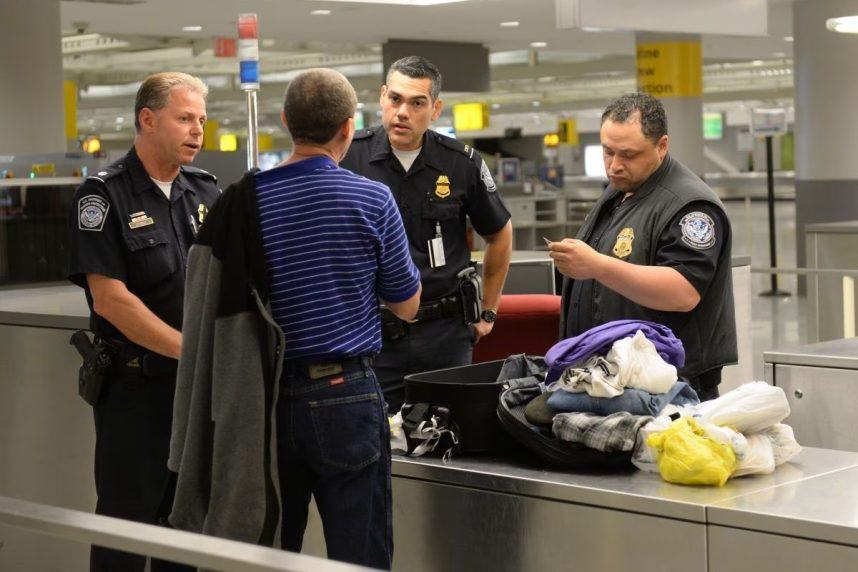Antigua Sports Betting Ring Head Indicted 13 Years Ago Finally Arrested
Posted on: August 29, 2023, 09:33h.
Last updated on: August 29, 2023, 10:42h.
Richard Sullivan, 73, of St. John’s, Antigua, has finally been captured by U.S. law enforcement. His appehension comes 13 years after a federal grand jury in Boston indicted him with numerous charges related to his alleged offshore sports betting operation.

Sullivan was arrested last week at John F. Kennedy International Airport in New York while being processed through customs upon his return from Antigua. Sullivan was subsequently arraigned in the Eastern District of New York. The case has since been transferred back to the District of Massachusetts, where Sullivan will appear in a Boston federal court at a later date.
The 2010 indictment alleges Sullivan led a multimillion-dollar offshore sports betting operation called Sports Offshore. While the online sportsbook was licensed in Antigua, federal prosecutors allege the operation primarily focused on U.S. customers in an illegal capacity.
Legal sports betting in the U.S. was, at the time, limited to Nevada. It wasn’t until May 2018 when the U.S. Supreme Court struck down a federal law that essentially gave states the right to determine their own laws on sports gambling.
Today, more than 30 states have authorized sports betting, with many allowing online operations. Offshore sportsbooks like Sports Offshore are still illegal in the US, as the sites aren’t licensed by any state gaming regulator. Furthermore, offshore sites aren’t regulated for fair play, aren’t taxed, and have no consumer protections.
UIGEA First
The U.S. Justice Department says Sullivan’s 2010 indictment marked one of the first prosecutions of an individual under the Unlawful Internet Gambling Enforcement Act (UIGEA) of 2006. The federal law prohibits a gambling business from “knowingly accepting payments in connection with the participation of another person in a bet or wager that involves the use of the internet and that is unlawful under any federal or state law.”
The federal grand jury concluded that there was sufficient evidence to warrant charges that Sullivan oversaw an illegal sports betting ring that operated in the U.S. Sullivan was charged with racketeering (RICO), operating an illegal gambling business, transmission of wagering information, money laundering, and interstate travel in aid of racketeering.
Prosecutors allege Sullivan employed approximately 50 people in the U.S. who solicited customers and collected debts.
Two of Sullivan’s right-hand men, Todd Lyons and Daniel Eremian, the latter who is the brother-in-law of ex-Congressman John Tierney (D-Mass.), were convicted for their roles in Sports Offshore in December 2011. Lyons was sentenced to four years in prison and ordered to forfeit $24.6 million. Eremian was sentenced to three years in prison and ordered to forfeit $7.7 million.
Sullivan is facing considerably longer time in prison if he’s found guilty. The racketeering charge alone provides for a sentence of up to 20 years. The illegal gambling charge could add another five years.
Antigua at Odds With US on iGaming
Sullivan avoided prosecution by remaining in Antigua, where the country has refused to extradite persons to the U.S. facing internet gaming charges. While Antigua does extradite persons to the U.S. for other criminal charges, the Caribbean island country has taken issue with the U.S. prosecution of offshore gaming websites.
Antigua is a hub for online gaming websites. The country prevailed in a 2003 complaint against the U.S. filed with the World Trade Organization that challenged the U.S. cross-border prosecuting ability for those alleged to have allowed U.S. residents to gamble on their offshore websites.
Related News Articles
MGM Springfield Armed Suspect Is Killed By Police Officers Near Casino
Casino Crime Roundup: Shooting Near Suncoast Casino in Las Vegas
Most Popular
LOST VEGAS: ‘Tony The Ant’ Spilotro’s Circus Circus Gift Shop
Casinos That Were Never Casinos
LOST VEGAS: The Strip’s First Fountain Show
Most Commented
-
End of the Line for Las Vegas Monorail
— April 5, 2024 — 90 Comments -
Cracks Emerging on Las Vegas Strip Says Analyst
— April 30, 2024 — 17 Comments -
Mega Millions Reportedly Mulling Substantial Ticket Price Increase
— April 16, 2024 — 10 Comments -
Caesars Open to Selling ‘Non-Core’ Casinos to Reduce Debt
— May 1, 2024 — 7 Comments
















No comments yet